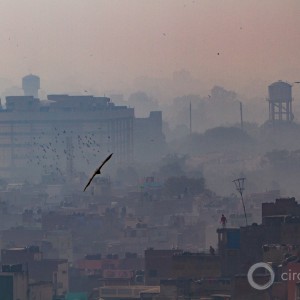The Stream, June 28: Floods and Droughts Threaten Global Food Trade Routes
The Global Rundown
Major shipping routes that carry much of the world’s food are at increasing risk from droughts, floods, and other climate-related shocks, a new report says. The construction of residential homes in wetland areas near Zimbabwe’s capital is reducing water supplies. The number of cholera cases in Yemen may have reached a halfway point, according to the World Health Organization. A state-appointed board in Michigan renewed the threat of foreclosure for residents in Flint who have not paid their water bills. The U.S. Environmental Protection Agency announced plans to withdraw the federal Clean Water Rule. A major gold mining project in British Columbia received a regulatory amendment to store tailings in fish-bearing streams.
“Approximately 60 percent of Harare and Chitungwiza’s wetlands have been invaded or taken over for construction purposes. All these constructions on wetlands are unlawful.” –Steady Kangata, a spokesman for Zimbabwe’s Environmental Management Agency, commenting on the expansion of residential areas into wetlands near the capital and surrounding towns. As wetlands are destroyed, water supplies are also drying up in those areas. (Reuters)
By The Numbers
218,798 cholera cases Number recorded so far in Yemen. The World Health Organization said emergency response measures may finally be curbing the outbreak, and that it may have reached a halfway point. Reuters
8,000 residents Number in Flint, Michigan who could lose their homes for not paying their water bills. The city council had previously put a 1-year moratorium on tax liens that could result in foreclosure, but a state-appointed board overruled that moratorium on Tuesday. MLive
Science, Studies, And Reports
Floods, droughts, and other extreme weather events linked to climate change are putting the global food trade at risk, according to a report released by the Chatham House think tank in London. Major shipping routes in the United States, Brazil, and the Black Sea region transport more than half of the world’s staple crop exports, but a climate-related shock could significantly delay the flow of food through these choke points — disrupting markets around the world. Guardian
On The Radar
The U.S. Environmental Protection Agency will withdraw a federal Clean Water Rule that has been the source of widespread litigation, according to agency administrator Scott Pruitt. The rule, finalized by the Obama administration, sought to clarify federal protections over small streams and wetlands. The Washington Post
In context: Clean Water Rule repeal cannot come at a pen stroke.
The Canadian government has issued a regulatory amendment that will allow the $5.3-billion Kerr-Sulphurets-Mitchell mining project in British Columbia to store tailings in several streams used by fish. The mine, currently under development, could become one of the largest gold and copper projects in the world. Mining Weekly
In context: Alaska seeks river protections against British Columbia mines.
A news correspondent for Circle of Blue based out of Hawaii. She writes The Stream, Circle of Blue’s daily digest of international water news trends. Her interests include food security, ecology and the Great Lakes.
Contact Codi Kozacek





